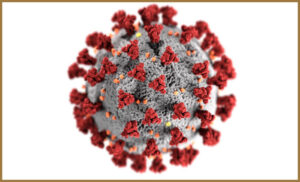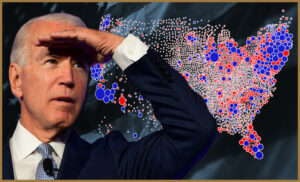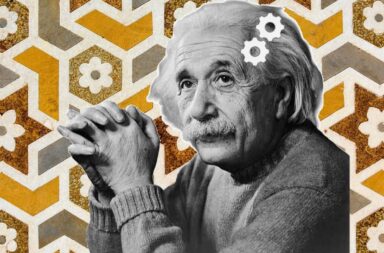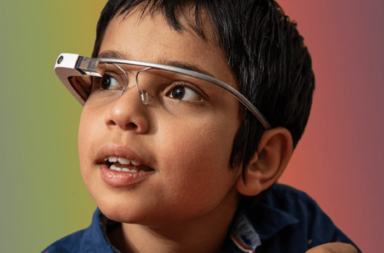When October came to an end, I found myself with my hands down the back of sofas, rummaging around for some shred of autism news. ‘I’m sure I must have had some’ I thought, as I moved my search into the pockets of old jackets, but as far and wide as I looked there was none to be found. Admittedly, this meant there was a moment when I thought I might have to skip October’s roundup, but then came that final week.
Yes, the last 7 days for the month of October were pretty big and, in this post, I plan to break down exactly how. So, if you’re looking to learn about new international shakeups, worldwide celebrations and trouble from the autism community’s old arch-enemy: puppets, then you’re going to want to pull up a chair, because this is the post for you.
[As always, links to the full stories can be accessed by clicking on the red titles and the bold headings]
5. Spitting Image Stars Troubling Autism Portrayal

After 24 years of absence, this month the British satirical puppet show, Spitting Image returned to TV, bringing with it the very pressing question of ‘is it still funny to watch someone have their towel fall off?’. As it stands, no, it’s not funny (even when it happens to puppets of Donald Trump, Boris Johnson and Vladimir Putin). However, as it turned out, a jokeless comedy was the least of ITV’s concerns when the show finally aired.
From pretty much the get-go Spitting Image found itself in hot water, as many viewers found controversy in the exaggerated representations of their favourite celebrities. Yet, when the puppet of autistic environmentalist Greta Thunberg was revealed, these slight peeves became vocal frustrations as many challenged the representation which contained clichéd characteristics associated with the spectrum.
Nevertheless, while I can understand the trouble caused by having a highly well-known autist portrayed as stubborn, obsessed and easy to anger, it’s important to remember the show is based on creating depictions which are intentionally unrealistic. For this reason, it’s best our community doesn’t take this one too personally and ignores it for the most part, as:
- The character only appears for a few minutes;
- The show really is quite rubbish (so it’s likely getting cancelled anyway).
4. Autism Advocate Reaches Final 3 for The International Children’s Peace Prize

Sienna Castellon is an absolute force when it comes to neurodiverse advocacy. Before the age of 16, Castellon had established a safe haven for supporting autists: with Quantum Leap Mentoring and, not long after, she published the incredible Spectrum Girl’s Survival Guide. As if that wasn’t enough, Castellon has more recently founded the crucial Neurodiversity Celebration Week: a 7-day long event, in which schools and employers celebrate the traits which give identity to 15% of society.
Over the years, all of these accomplishments have been noticed and accredited with awards such as the BBC Radio 1’s Teen Hero Award, The Diana Award and many, many more. However, in October, it was announced that Castellon was in the running for her biggest honour yet: the prestigious International Children’s Peace Prize (an award which last year was won by none other than the previously mentioned autist Greta Thunberg).
Of course, while the €100,000 prize (which comes with first place) is something nobody would want to miss out on, the fact that Castellon has made it into the top three of this competition is, in itself, an incredible recognition of the talent she has and the difference she is making. What follows from here though is too early to tell, but whether Castellon does or doesn’t come first, it’s clear that she is a success for our community; who will only go from strength to strength.
3. PlayStation Release Accessibility Details for New Console Generation

Despite the next generation of console gaming right around the corner, there’s still so much we don’t know about the Xbox Series X (releasing on November 10th) and the PlayStation 5 (releasing on November 12th). For many, this can make the jump to buying one of the gen 9 systems a bit of a stab in the dark, yet, for PlayStation fans with accessibility needs, October proved to have a light at the end of the tunnel.
In an announcement which FINALLY gives me an excuse to talk about gaming on this site, last month Sony unveiled that many of the adjustments it had previously made for disabled gamers would return in their new PlayStation. These tweaks (which can all be read in the official post) included:
- Voice to text controls
- Colour conversion
- Button reassignment
- Closed Captions
However, with an update in hardware also comes an update in the quality of the features, with new additions such as global voice recognition and text to speech being introduced.
In the statement, Sony also explained how many of its first-party titles will continue to be encouraged to pursue an accessibility first philosophy, examples which were found throughout The Last of Us Part II (which featured more than 60 accessibility settings!).
With that said, it should not be underestimated how much work Microsoft has previously done with its Xbox to create controllers fit for every diversity over the years. So, before we give the beast from the east this gen’s accessibility crown, it’s best to wait and see what they have up their sleeve (something which likely won’t be unveiled now until release day).
2. How Lockdown 2.0 Differs for Those on the Spectrum

Whilst you wouldn’t notice it if you looked outside, one of the biggest shakeups which took place in the UK last month was the announcement of a second coronavirus lockdown; a decision which sees a temporary shift from the previous tier system to a nationwide closure, until December 2 (or, more accurately, whenever the government decides we can be trusted again).
For autistic people and families of autistic people, this move is one which has yet again been as unclear as every other pandemic precaution from the last year but, in essence, if there is something which you want to do which isn’t seen as essential chances are you can no longer do it.
Nevertheless, there are certain exceptions which apply to our community. For example, while in most cases you can only meet one person from another household outdoors, if you are the carer of someone who is less independent due to existing conditions such as autism, they are not counted towards this two-person total.
Truth be told, the whole situation is extremely complicated to summarise in just one section so, if you do want to know more, then please check out the National Autistic Society’s list of restrictions on going out and shielding in England, found here.
1. What Will Biden Mean for Autistic America?

Oh America you beautiful bastards, you finally did it. You realised that after 4 years of having a racist wannabe dictator in charge, that there truly is a better way and now, as of writing this article, it seems like you are about to dump Trump and reap the spoils of your victory.
Of course, this is news that really should be saved for the November roundup. However, when focusing on the benefits of how this will change our community, one need look no further than Biden’s campaign plan; a statement which was available in October and showed how a potential Trump loss would be a win for all disabilities and neurodiversity.
Found within the section labelled ‘The Biden Plan for Full Participation and Equality for People with Disabilities’, A Biden-era America is one which will be built on the idea that ‘everyone should be treated with dignity and have a fair shot at getting ahead’. This philosophy is further sealed in commitments found throughout the page – all of which are too much to mention here but can be summarised as follows:
- Ensuring the full inclusion of people with disabilities in policy development;
- Guaranteeing access to high-quality and affordable health care;
- Expanding competitive and integrated employment opportunities;
- Protecting and strengthening economic security for people with disabilities;
- Ensuring that students with disabilities have access to educational programs and support they need to succeed;
- Expanding access to accessible, integrated, and affordable housing, transportation, and assistive technologies;
- Advancing global disability rights in general.
Without question, this is a huge step forward for the autism community if only in intention alone. Yet, if Biden can succeed in any one of these campaign promises then, America, you are in for a treat of a term (and not just because you’ll be seeing the back of a president who openly mocked all disabilities during his campaign trail in 2016).
Carry on the Conversation:
Which of Biden’s commitments would you most like to see put in place where you live? Let me know in the comments below. And, if you would like to hear more about Siena Castellon’s story, then check out this incredible piece she wrong for Autistic & Unapologetic titled: The Harsh Reality of Autism Bullying and Autistic Hate Crime.
As always, I can also be found on Twitter @AutismRevised, on Instagram @autisticandunapologetic and via my email: AutisticandUnapologetic@gmail.com.
If you like what you have seen on the site today, then show your support by liking the Autistic & Unapologetic Facebook page. Also, don’t forget to sign up to the Autistic & Unapologetic newsletter (found on the sidebar on laptops and underneath if you are reading this via mobile) where I share weekly updates as well as a fascinating fact I have found throughout the week.
Thank you for reading and I will see you next week for more thoughts from across the spectrum.


